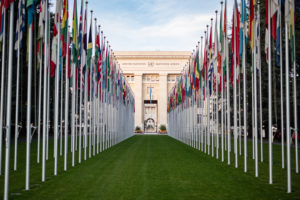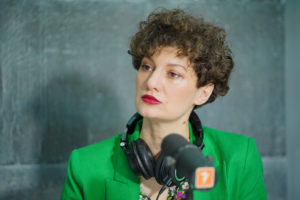
Freedom of expression
Freedom of expression is essential in informing and facilitating the realisation of other fundamental human rights. It is particularly important in situations where human rights abuses are occurring.



Our position
The rights to freedom of opinion and expression grant all people the right to express themselves, and to seek, receive and impart information through any medium. The United Nations Human Rights Committee qualified freedom of opinion and expression as “indispensable conditions for the full development of the person”
Freedom of expression allows pluralist dialogue and creates a secure platform for critical voices. It ensures that people have the right to seek, obtain, receive and hold information about human rights and human rights violations.
“In the life of the human spirit, words are action, much more so than many of us may realise who live in countries where freedom of expression is taken for granted. The leaders of totalitarian nations understand this very well. The proof is that words are precisely the action for which dissidents in those countries are being persecuted. “
President Jimmy Carter Address at Commencement Exercises at the University de Notre Dame, 22 May 1977.
States should ensure that people are able to peacefully protest, publicise and circulate information, and criticise the failure of governments to protect or promote human rights.
Violations of the right to freedom of expression have wide implications for society as a whole. Freedom of expression is fundamental to the underlying values of democracy, and is essential for a free and independent media space. This includes the right of anybody, especially human rights defenders, to have access to and use of information technologies and the media of one’s choice, including radio, television and the Internet.
Human rights defenders do not have more rights than other people but, as with journalists and media workers or lawyers, those holding power often aim at silencing them. Hence, they need higher protection to be able to express their opinions and promote any human right. This applies even more for those expressing dissenting views, defending the rights of persons belonging to minorities, or espousing minority beliefs.
The manifestation of dissenting views can take different forms. It can be through peaceful protests or media, during public events, or through calling for boycotts, such as of an electoral process or a referendum. States must comply with both negative and positive obligations. That is, refraining from interfering with the right to express dissenting views, and adopting measures to protect the expression of views in a peaceful way.

Restrictions on dissenting views
There is a trend for States to try to silence human rights defenders that express dissenting views, especially critics of the government and those divulging cases of corruption or reporting on human rights abuses. Similarly, after years of progress, States are now adopting more restrictive legislation that criminalises defamation online and offline.
Mindful of the significant negative impact of measures that restrict dissenting views, the Human Rights Council has sought to encourage States to address this trend. It has welcomed steps – such as decriminalising defamation – that protect human rights defenders from being prosecuted for peaceful activities.
Human rights defenders must be able to carry out their work without fear of retaliation for expressing critical points of view.





